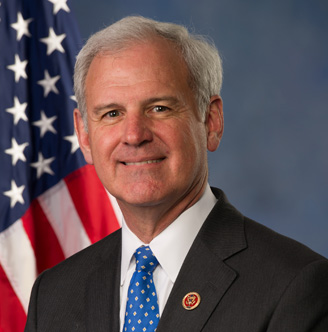By Brandon Moseley
Alabama Political Reporter
Criminal incompetence at Veteran Administration hospitals, the tragic deaths of five Americans in Benghazi in 2012, and now the controversy surrounding the exchange of five potentially dangerous Taliban officials for Army Sergeant Bowe Bergdahl is dominating much of Congresses attention recently.
On Wednesday, June 11, 2014 following the first public Congressional hearing on the transfer of five Taliban officials in exchange for Army Sgt. Bowe Bergdahl, Congressman Bradley Byrne (R) from Montrose expressed his immense concern that the transfer will put American service members at greater risk.
Representative Byrne said: “I appreciate Secretary Hagel for spending considerable time in front of our committee today. I went into the hearing with serious concerns that our military members serving in the Middle East, and Americans the world over, are in greater danger today due to the release of these Taliban officials. Secretary Hagel’s testimony did little to ease my concerns, and actually only raised more questions about the security of Americans abroad.”
Rep. Byrne said, “Of particular concern to me, Secretary Hagel failed to provide a compelling reason why the law was not followed in regard to notifying Congress 30-days prior to the release of any Guantanamo Bay prisoners. The idea that the President can unilaterally decide that a law does not apply to him should be alarming to all Americans.”
Congressman Byrne took part in a House Armed Services Committee hearing with Secretary of Defense Chuck Hagel. The hearing was scheduled in response to the transfer of five mid to high-ranking Taliban officials in exchange for Sgt. Bergdahl, who had been held captive in Afghanistan for the past five years.
Rep. Byrne said, “This investigation is not over. We will continue to demand answers about this secret deal from the Obama administration to ensure a future transfer of this nature does not happen again.”
According to information provided by Rep. Byrne’s office, Section 1035 of the National Defense Authorization Act (NDAA) for Fiscal Year 2014 says that the Secretary of Defense must notify Congress at least 30 days before the transfer or release of a Guantanamo detainee.
Secretary Hagel told the Committee, “I appreciate the opportunity to discuss the recovery of Sergeant Bowe Bergdahl, and the transfer of five detainees from Guantanamo Bay to Qatar. And I appreciate having the Department of Defense General Counsel Stephen Preston, here with me. Mr. Preston was one of our negotiators in Qatar and signed on behalf of the U.S. the Memorandum of Understanding between the Governments of Qatar and the United States. Also here representing the Joint Chiefs of Staff is Brigadier General Pat White, who is the Director of the Joint Staff’s Pakistan/Afghanistan Coordination Cell and who helped coordinate the Bergdahl recovery on behalf of the Chairman of the Joint Chiefs of Staff, General Dempsey. The Vice Chairman of the Joints Chiefs, Admiral Winnefeld, will join us for the closed portion of this hearing. As you know, General Dempsey and Admiral Winnefeld played a critical role in the meetings at the National Security Council leading up to Sergeant Bergdahl’s release and supported the decision to move forward with this prisoner exchange.”
Sec. Hagel said, “In my statement today, I will address the issues Chairman McKeon raised when he asked me to testify, and explain why it was urgent to pursue Sergeant Bergdahl’s release, why we decided to move forward with the detainee transfer, and why it was fully consistent with U.S. law, our nation’s interests, and our military’s core values.” “I would never sign off on any decision that I did not feel was in the best interests of this country. Nor would the President of the United States, who made the final decision with the full support of his national security team. There are legitimate questions about this prisoner exchange, and Congress obviously hasan important oversight role to play in all military and intelligence matters. As a former member of the Senate Select Committee on Intelligence and the Senate Foreign Relations Committee, I appreciate the vital role Congress plays in our national security. And I will present to this committee – within the limits of an open, unclassified, hearing, and in more detail in the closed, classified, hearing – everything I can to assure you that this prisoner exchange was done legally, with substantial mitigation of risk, and in the national interest of our country.”
Sec. Hagel said, “Let’s start with Sergeant Bergdahl’s status as a member of the U.S. Army. He was held captive by the Taliban and the Haqqani network for almost five years. He was officially listed as “missing-captured.” No charges were ever brought against him and there are no charges pending now. Our entire national security apparatus – the military, the intelligence community, and the State Department – pursued every avenue to recover Sergeant Bergdahl, just as the American people and the Congress expected us to do. In fact, as this committee knows, there were a number of Congressional Resolutions introduced, and referred to this committee, directing the President to do everything he could to get Sergeant Bergdahl released from captivity. We never stopped trying to get him back, as the Congress knows, because he is a soldier in the United States Army.”
Sec. Hagel said that, “Questions about Sergeant Bergdahl’s capture are separate from our effort to recover him because we do whatever it takes to recover any U.S. service member held in captivity. This pledge is woven into the fabric of our nation and its military. As former Central Command Commander Marine General Jim Mattis recently put it, “bottom line, we don’t leave people behind, that is the beginning and that is the end of what we stand for … we keep faith with the guys who sign on, and that is all there is to it.”
Sec. Hagel said, “The Army will review this in a comprehensive, coordinated effort that will include speaking with Sergeant Bergdahl. Like any American, Sergeant Bergdahl has rights, and his conduct will be judged on facts – not political hear-say, posturing, charges, or innuendo. We owe that to any American and especially those who are members of our military and their families. Like most Americans, I’ve been offended and disappointed in how the Bergdahl family has been treated by some people. No family deserves this. I hope there will be sober reflection on people’s conduct regarding this issue and how it relates to the Bergdahl family.”
Sec. Hagel said, “In 2011, the Obama administration conducted talks with the Taliban on a detainee exchange involving the five Taliban detainees that were ultimately transferred after the release of Sergeant Bergdahl. These talks – which Congress was briefed on in November of 2011 and January of 2012 – were broken off by the Taliban in March 2012. We have not had direct talks with the Taliban since this time. In September of 2013, the Government of Qatar offered to serve as an intermediary, and in November, we requested that the Taliban provide a new proof of life video of Sergeant Bergdahl. In January of this year, we received that video, and it was disturbing. It showed a deterioration in his physical appearance and mental state compared to previous videos. The intelligence community carefully analyzed it and concluded that Sergeant Bergdahl’s health was poor and possibly declining. This gave us growing urgency to act.”
Sec. Hagel said, “As the opportunity to obtain Sergeant Bergdahl’s release became clearer, we grew increasingly concerned that any delay, or any leaks, could derail the deal and further endanger Sergeant Bergdahl. We were told by the Qataris that a leak would end the negotiations for Bergdahl’s release. We also knew that he would be extremely vulnerable during any movement, and our military personnel conducting the hand-off would be exposed to a possible ambush or other deadly scenarios in very dangerous territory. And we had been given no information on where the hand-off would occur. For all these reasons and more, the exchange needed to take place quickly, efficiently, and quietly. We believed this exchange was our last, best opportunity to free him. After the exchange was set in motion, only 96 hours passed before Sergeant Bergdahl was in our hands. Throughout this period, there was great uncertainty about whether the deal would go forward. We did not know the general area of the hand-off until twenty-four hours before. We did not know the precise location until one hour before. And we did not know until the moment Sergeant Bergdahl was handed over safely to U.S. Special Operations Forces that the Taliban would hold up their end of the deal. So it wasn’t until we recovered Bergdahl on May 31st that we moved ahead with the transfer of the five Guantanamo detainees. The President’s decision to move forward with the transfer of these detainees was a tough call, but I support it and stand by it. As Secretary of Defense, I have the authority and responsibility to determine whether detainees at Guantanamo Bay can be transferred to the custody of another country. I take that responsibility as seriously as any responsibility I have.”
Sec. Hagel said, “Neither I nor any member of the President’s National Security Council was under any illusions about these five detainees. They were members of the Taliban, which controlled much of Afghanistan prior to America’s invasion and overthrow of that regime. They were enemy belligerents, detained under the law of war and taken to Guantanamo in late 2001 and 2002. They have been in U.S. custody at Guantanamo since then. But they have not been implicated in any attacks against the United States, and we had no basis to prosecute them in a federal court or military commission. It was appropriate to consider them for an exchange. And if any of these detainees ever try to rejoin the fight, they would be doing so at their own peril. There is always some risk associated with the transfer of detainees from Guantanamo. The U.S. government has transferred 620 detainees from Guantanamo since May 2002, with 532 transfers occurring during the Bush administration and 88 transfers occurring during the Obama Administration.”
It is likely that there will be more hearings on this topic in coming weeks.
Congressman Byrne represents Alabama’s First Congressional District. Rep. Byrne is seeking his first full term in the U.S. House of Representatives after being elected in a special election last December.






















































